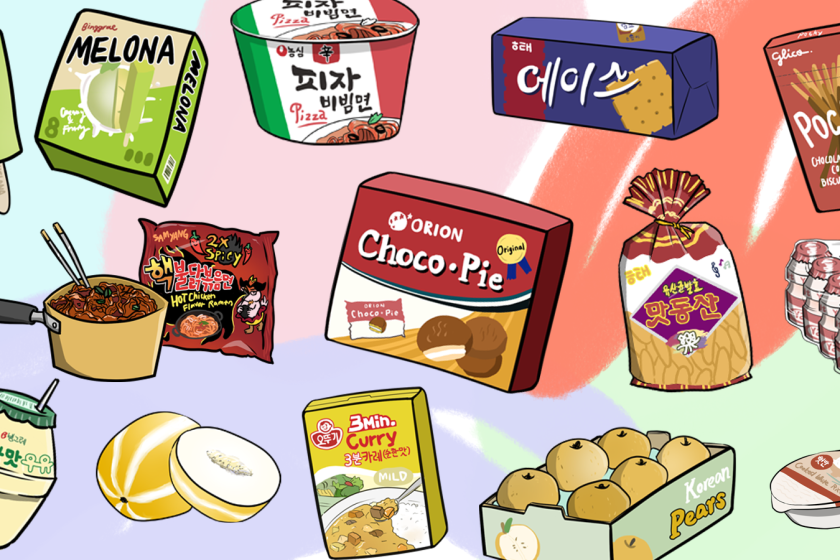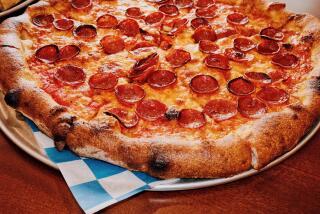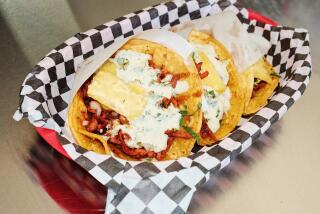Super King is L.A.’s most beloved international supermarket — and the customers are fiercely loyal
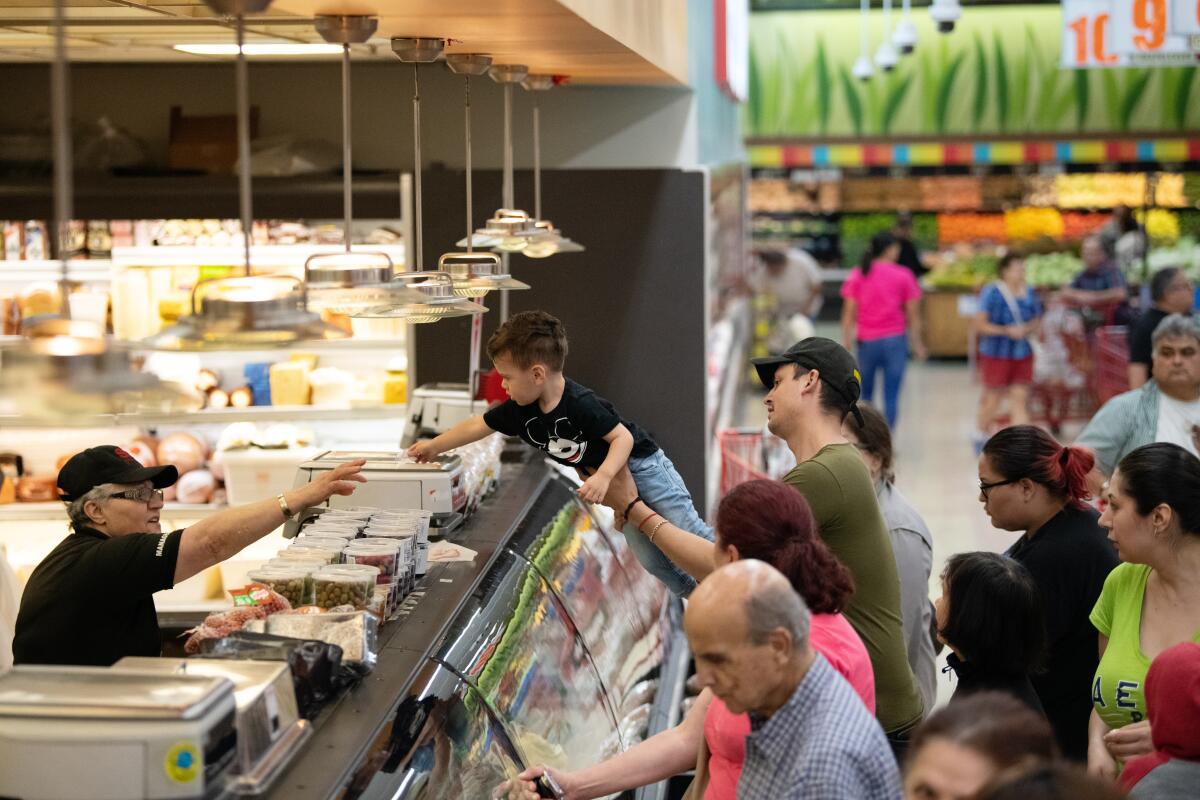
The Persian cucumbers are always a mob scene. Unattended shopping carts are strewn haphazardly around the perimeter of the display, creating a sort of Thunderdome-esque enclosure. Up close, retirement-eligible shoppers elbow one another while pawing through the heap of vegetables, searching for some magical mystery cucumber. Or rather, several dozen magical mystery cucumbers — at 69 cents a pound, one can afford to load up.
Welcome to Super King, L.A.’s most beloved international grocery shop. Known for its massive selection of imported goods and wallet-friendly pricing, Super King sees foot traffic of nearly 200,000 customers a week — it would take Staples Center 10 nights to do that kind of volume.

Sign up for the Tasting Notes newsletter
Founded in Anaheim in 1993, this independent, Armenian-owned business now has eight locations in Los Angeles and Orange counties. In an industry struggling to combat what analysts describe as a “retail apocalypse,” with stores from major chains closing and customers increasingly shopping online, Super King is not only surviving but thriving.
“Our competitors want to know how can we get so many customers flowing through,” said Rene Meija, Super King’s grocery buyer. “It’s because we cater to literally everyone.”
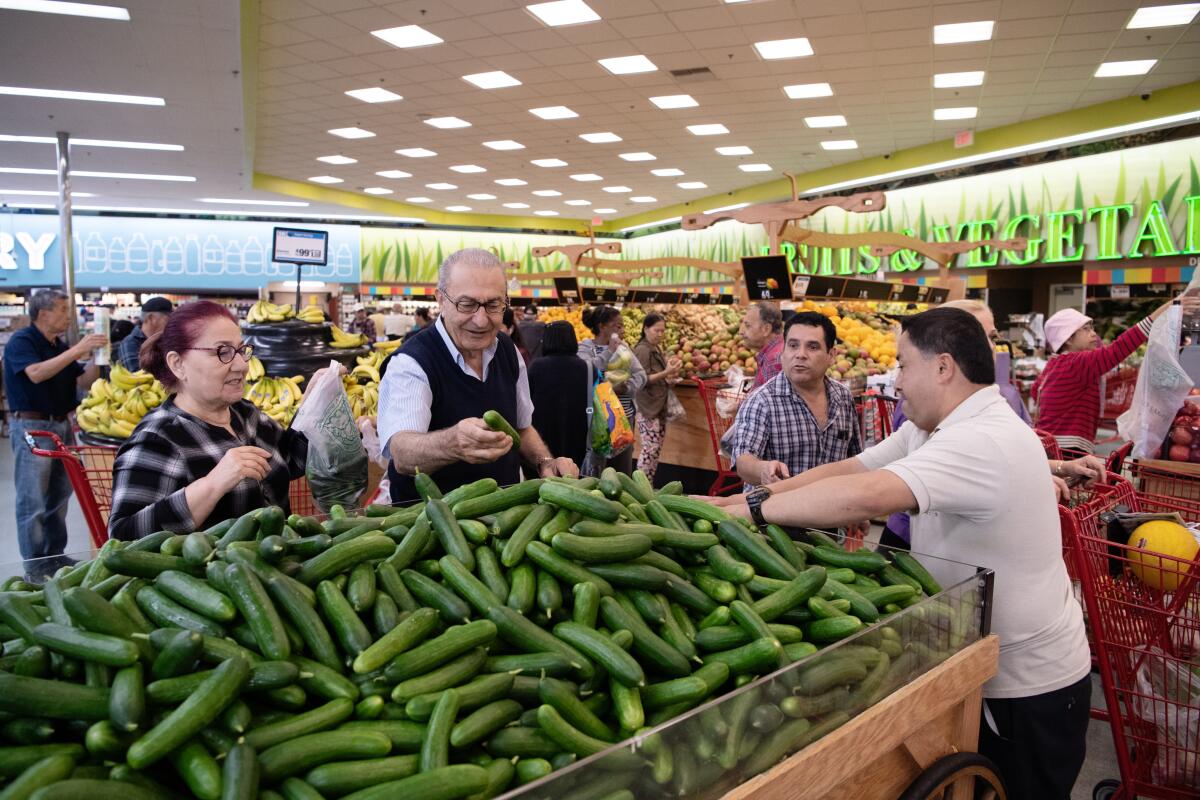
Although the chain declined to share profit figures, Super King Vice President Jake Fermanian said the market had increased its top-line sales every year for the last five years. Burt Flickinger, managing director at retail and consumer goods consulting firm Strategic Resource Group, estimates Super King earns around $200 million annually. “They provide the quality of Costco with the convenience of a neighborhood store,” he said, “and the entrepreneurial spirit of the multigenerational family [who owns it] shows in their service.”
Whereas larger chains often are forced to conform to a one-size-fits-all plan for purchasing or store layouts, Super King homes in on each store’s specific audience and tailors its promotions accordingly. In Glendale, for example, the weekly circular pushes primarily Armenian products; in Claremont, it’s a mix of Latin and Middle Eastern goods; in Anaheim, Asian produce is touted heavily. Super King does extensive demographic research before opening a new location, often relying on the community — and hiring from within it — to tell the company what it needs.
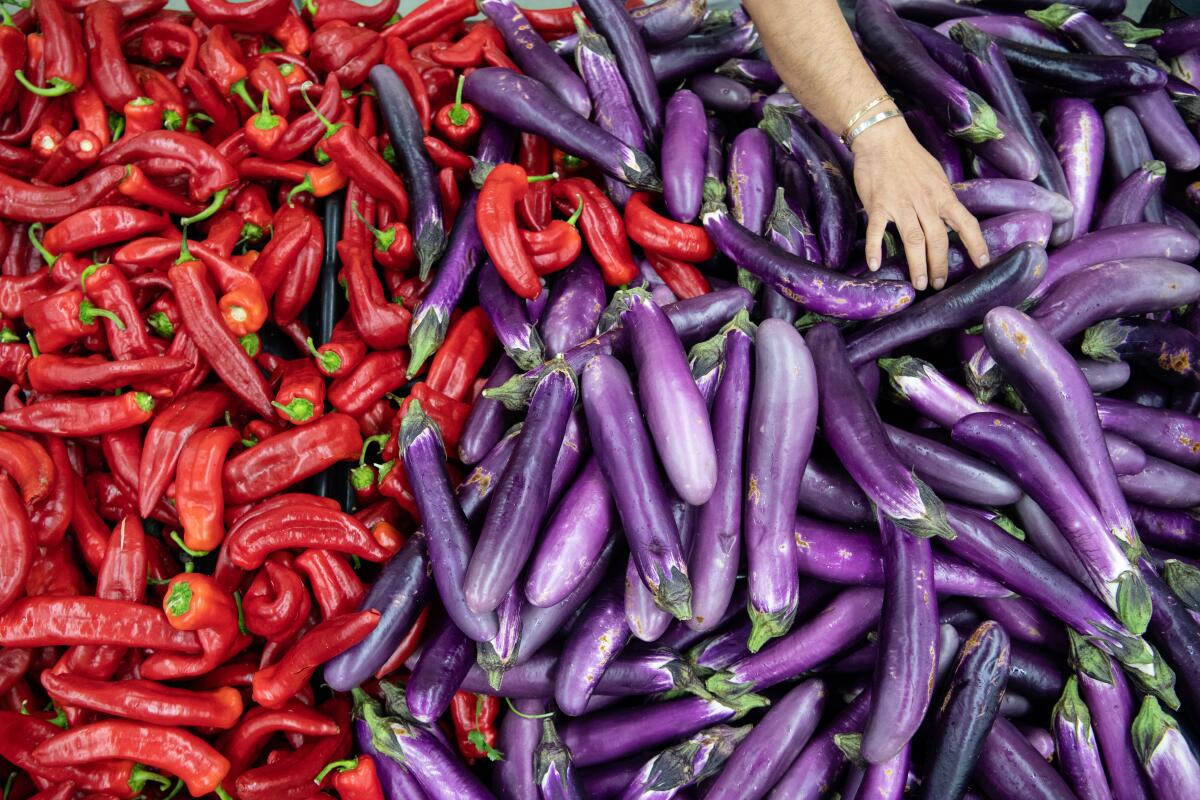
Super King’s prices are flabbergastingly low — 3 pounds of papaya for 99 cents, 2 liters of grape seed oil for $3.49, 5-pound bags of tilapia fillets for $2. In comparison, at Ralphs the same quantity of papayas was $3, 2 liters of grape seed oil was $19.69, and 12 ounces of tilapia (about one-sixth the size of the bag at Super King) costs $6. On FreshDirect, a single papaya costs $4, grape seed oil is sold only in 17-ounce bottles for $6 each, and a 7- to 9-ounce tilapia “family pack” goes for $7.49 per pound.
Super King’s corporate buyers shop aggressively for the best deals, sourcing the majority of its produce straight from packers, growers and farmers and trawling Alameda Street’s produce warehouses for the rest.
“It’s like being a stockbroker — you’re out there every single day, looking for the best cost,” said Eddie Avila, the company’s head produce buyer.
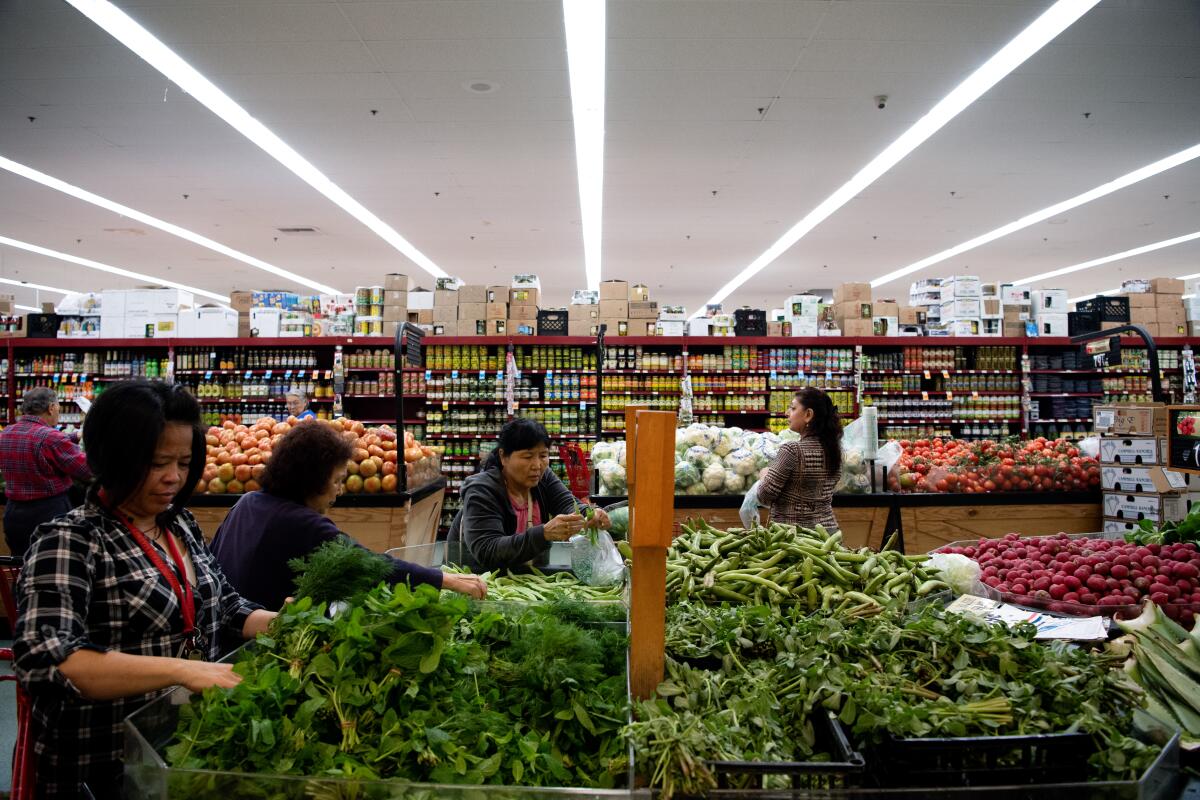
Every store feels distinctly international, with an astonishing variety of produce, dry goods, fresh meat and seafood from around the globe. It’s not uncommon to hear, in the course of a single shopping trip, a garbled harmony of different languages in the aisles as customers jostle for the best-looking sour plums or crowd the cheese counter for a hunk of one of eight different fetas. This is part of the pleasure of the Super King experience.
“There’s a strong sense of non-American-ness there,” said Dileep Rao, 45, of Los Feliz, an actor and devotee of the Glassell Park location. “People push and crowd and leave their cart right behind your car, but you have to be OK with different cultures behaving in different ways if you want to take advantage of all that Super King has to offer.”
Every Super King shopper has had to contend with the frenetic nature of the store and its notoriously cramped parking lots.
I love that I can find anything, but I can get road rage inside.
— Caroline Hwang
“The traffic jams in the aisles are worse than the 405,” said Silver Lake photographer Dylan Ho, 41, a regular at the Glassell Park location. “I’ve been run down by grandmas who don’t stop for anything — good luck if there’s 3 pounds of Roma tomatoes on sale for 19 cents.”
“I love that I can find anything, but I can get road rage inside,” said Caroline Hwang, 39, a Highland Park-based food stylist who regularly combs the Altadena location before photo shoots. “In the produce section, people shop like the apocalypse is coming.”
Regardless, customers are fiercely loyal.
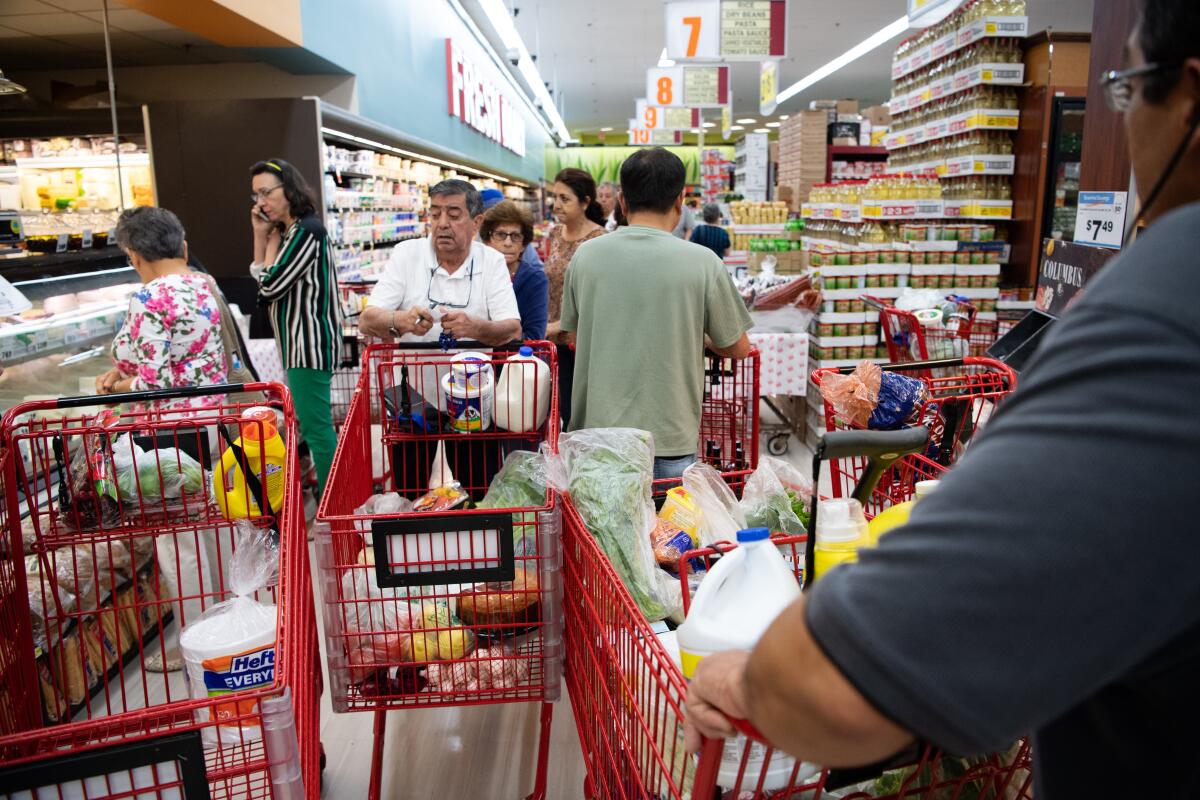
“It’s a testament to the store — people know it’s going to be crazy, but they know they’re going to get what they want, so they still go. Including me,” said Rudy Lopez, 32, of Arcadia, chef de cuisine at NoMad in downtown L.A., who shops at the Claremont location when he’s cooking at home.
On the busy floor, cross-cultural exchanges are inevitable and often delightful. “I’ve learned about all kinds of stuff that I didn’t grow up with — basturma [dried Turkish beef], Danish double cream feta, pomegranate syrup and more,” said Wes Avila, owner of Guerrilla Tacos, who wrote lovingly about the store in his cookbook, “Guerrilla Tacos: Recipes From the Streets of L.A.”
“The staff is super-friendly, and they recommend new things to me all the time,” he said. Avila shops at the Glassell Park location weekly, for both himself and his Arts District restaurant, loading up on cooking oils, spices and specialty produce such as gooseberries and oyster mushrooms. “They have things that no one else has, and you cannot beat their prices — you can’t even compete.”
Moving an abundance of products (and shoppers) is all part of Super King’s strategy: “Volume solves everything,” Fermanian said. Buying in volume enables the store to pass on savings to the customer, but low cost doesn’t mean low quality: Every item passes through the company’s centralized warehouse in downtown L.A. for quality control before being sent out to one of the retail locations; it’s an unusually high-touch approach in an industry where vendors typically deliver straight to stores.
That hands-on approach reflects the company’s roots: Fermanian’s father, Peter, had no experience in the grocery industry when he moved to the U.S. from Lebanon in 1988. But he saw grocery as recession-proof and went into business with his wife, his brother and his father, who had worked in the produce industry in Lebanon and was, by all accounts, a zealot for quality assurance.
“My dad and uncle would shop the produce markets at 1 a.m. before showing up at 6 a.m. to stock the store, and my grandpa would push them for the best — get this, not that,” Fermanian said.
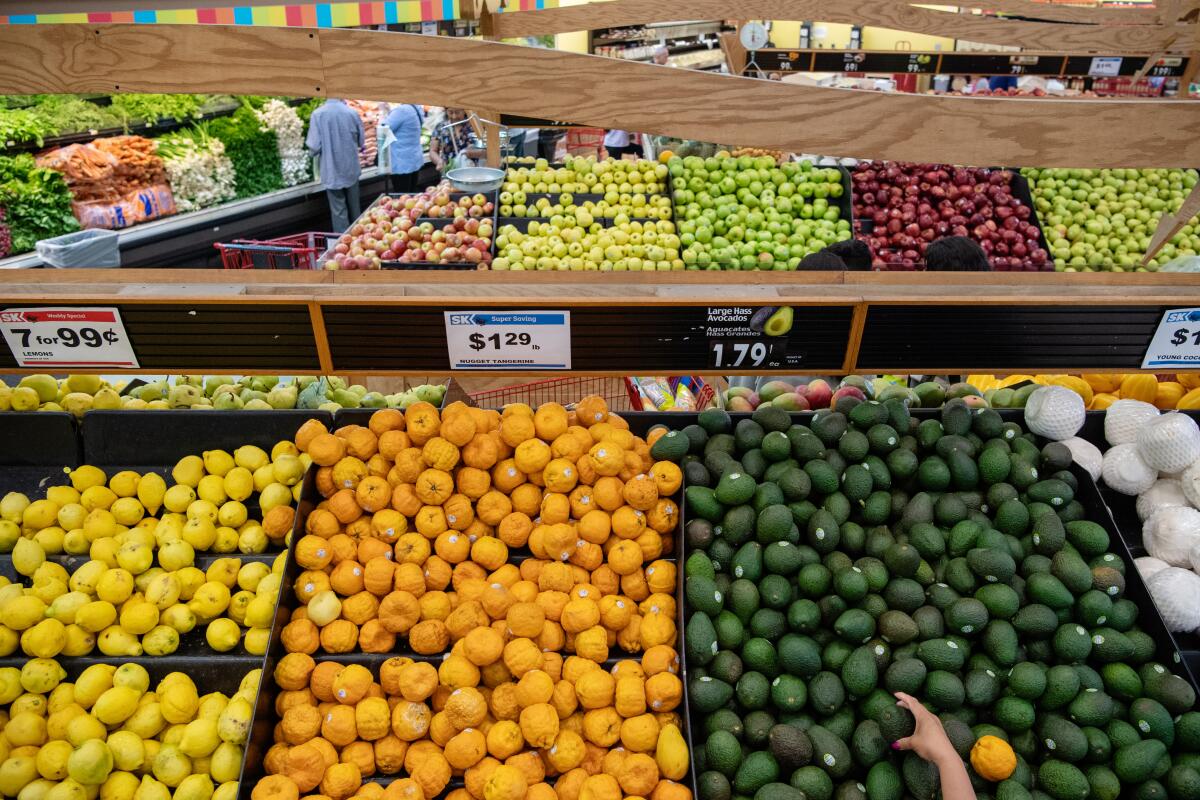
The family quickly outgrew their original 3,000-square-foot Anaheim store and moved into a much larger storefront in a shopping center down the street, thus beginning a strategy of revitalizing struggling strip malls. As the company grew, so too did its offerings, transitioning from primarily produce and Armenian goods to an international supermarket. The second location opened in Glassell Park in 2006, followed by Altadena, Claremont, Northridge, Van Nuys, Santa Ana and, most recently, Glendale.
The younger Fermanian is well aware of the challenges facing traditional grocers today: Millennials don’t cook at home as much as previous generations, minimum wage keeps increasing and online shopping is on the rise (see: FreshDirect, Instacart and Amazon buying Whole Foods). According to a study by the Food Marketing Institute conducted by Nielsen last year, online grocery sales are predicted to capture 20% of total grocery retail by 2025 and reach $100 billion in consumer sales, up from 3% ($19 billion) in 2017.
“The biggest challenge to smaller players is all the advancements happening in technology,” said Tory Gundelach, a grocery analyst with market research agency Kantar. “Beyond even just online, we’re seeing the usage of mobile apps and smart voice devices to aid in shopping, and smaller operations typically don’t have the capabilities built out in those spaces. Their best option is to use the bricks-and-mortar assets they have to really offer something unique, that gives shoppers a reason to come into the store.”
But apart from partnering with Instacart five years ago to offer online delivery and setting up more internal infrastructure to handle future growth, Fermanian isn’t too concerned with the challenges facing bricks-and-mortar retail.
“At the end of the day, we’re focused on freshness and low pricing, and that’s why we’re successful,” he said.
Super King is still in growth mode, with a goal of opening one new store a year, and remaining independent and family-run.
“Physical retail is here to stay, and we’ll fight for it,” Fermanian said. “Unless Mr. Bezos comes in and throws a few trillion at us — then, maybe, we’ll talk.”
More to Read
Eat your way across L.A.
Get our weekly Tasting Notes newsletter for reviews, news and more.
You may occasionally receive promotional content from the Los Angeles Times.
